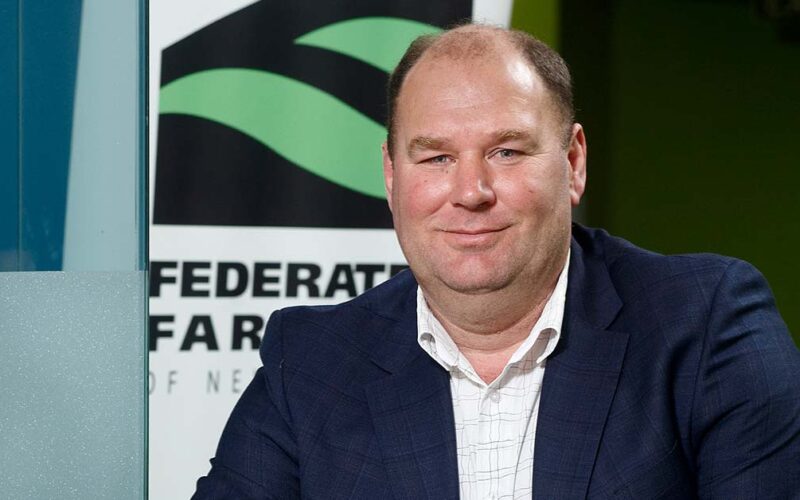It was obvious to farmers from the start that aspects of the government’s freshwater policy reforms couldn’t work.
Had government officials, for example, quietly told Southland farmers of plans to include in freshwater regulations limits to the depth of pugging in intensively grazed winter paddocks, they would have been told by those in the know that it was not feasible.
“Unsurprisingly, so much of the policy was unworkable,” Federated Farmers president Andrew Hoggard said.
“Three to four years on they are still tabling amendments to try and fix parts of it up.”
Rather than consulting those with practical knowledge before drafting bills, some Wellington bureaucrats take the view that they know best, Hoggard said.
There are hard-working and well-meaning officials, but increasingly, Hoggard said, he is hearing from those who have worked in Wellington for many years that there is a growing politicisation of the public service.
He concurs.
“It’s just sometimes it feels like we have got a public service that has become party-political, that is trying to meet party goals instead of being a public service.”
Dr Simon Chapple, a director of Victoria University’s Institute of Governance and Policy Studies, said the current government is using its Parliamentary majority to advance its policy agenda at the expense of the democratic process.
He said the governments of Jacinda Ardern and Prime Minister Chris Hipkins have tended to present the public with a policy decision rather than a series of policies on which the government then consults to decide which to pursue.
“Good public policy is about defining a problem, presenting a range of policies that could be put in place then assessing through public consultation the pros and cons to find the best option,” Chapple said.
However, Agriculture Minister Damien O’Connor said the government has a strong track record of engagement and consultation with the industry.
“There are numerous instances where the government has listened to farmers and adjusted. For instance, the He Waka Eke Noa process has been progressing since 2019 when the government agreed with the request of the industry to allow them to develop a workable way to price agricultural emissions.”
O’Connor said the government worked closely with farmers on intensive winter grazing measures and there was extensive public consultation on freshwater reforms, with a record 17,500 submissions received in 2019.
He said the reforms “were adjusted in response to feedback from farmers and others and are now being rolled out in a staged way through a smaller number of regions to assess their practicality and effectiveness”.
Hoggard said he senses the same mistakes are being made with reforms to the Resource Management Act – no consideration of options prior to the writing of draft policy, selective input to early policy drafts, and rushed consultation and passing of policy.
He said consultation on draft policy for freshwater reforms was held during calving season and the RMA over Christmas.
Beef + Lamb NZ chief executive Sam McIvor said the government is trying to do too much, too fast.
“They need to hit pause and take the time to get this right, and work with the people this will affect to ensure we all get the best outcomes.”
A Ministry for the Environment (MFE) review of the implementation of new freshwater regulations found staff were put under pressure by meddling from Environment Minister David Parker.
Farmers Weekly last year reported that John O’Connell, the MFE’s principal risk and assurance advisor, found staff were overworked and junior staff were doing roles for which they lacked experience without oversight.
There was also inadequate information for consultation, no stress-testing of regulations, and differing interpretations of agreed policy decisions.
“These issues all contributed to a feeling of uncertainty by affected parties (farmers) regarding the impacts of these regulations on their practices (for example, whether and when they would require a resource consent),” O’Connell said.
Further complicating the process was what O’Connell called “ministerial-driven scope changes” in which Parker initially ignored advice from the ministry and an independent advisory panel to not include pugging rules in the National Environmental Standards as they were deemed too difficult to enforce.
Tight time frames added to the pressure.
“The high ministerial priority of this work, and a political desire to implement the package in the current term of government, meant that the overall deadline could not be pushed out,” the report said.
A spokesperson for Parker said the government extended the consultation period, and policies were phased in gradually to allow time for the farming community, councils and others to build capability and capacity.






